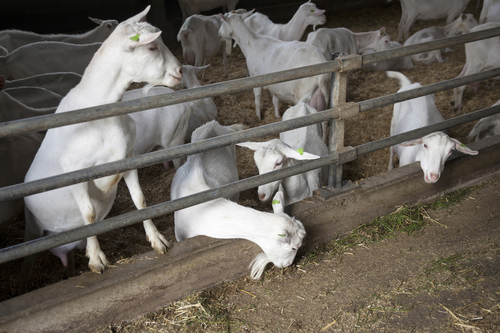Q fever patients’ neglect “in line with child benefits scandal”

The health ministry has appointed an “ambassador” who will represent Q fever sufferers following critical reports about their treatment by the government.
Q fever is carried by goats and sheep and is highly infectious. The Netherlands was hit by a major Q fever epidemic between 2007 and 2011 in which between 50,000 and 100,000 people became ill and at least 74 died. Some 40,000 goats were culled during the outbreak.
One in five people infected with the disease goes on to develop symptoms similar to Long Covid and ME and many people could not work because of the debilitating effects of the disease.
According to research by Erasmus University teaching hospital, chronic sufferers continued to work for an average of eight years before they were forced to stop. They were then up against state benefits agency UWV, which refused to recognise the disease, affecting their right to benefits.
“As far as I am concerned, the neglect by the government is the same as the child benefit scandal and the people duped by the gas extraction in Groningen,” the new Q fever representative Cathalijne Dortmans told broadcaster NOS.
Many victims are still suing the government for compensation and recognition 15 years on, ombudsman Reinier van Zutphen said. His office has produced three reports on the scandal, the first two of which were largely ignored by officials.
The third report, from 2024, has now led to the appointment of Dortman, who worked as a legal official for the parliamentary farming committee during the epidemic. She then spent six years on the executive at Helmond town council. “I am very familiar with the consequences of Q fever in Noord-Brabant,” she said.
Dortmans said her first priority is to talk to Q fever patients to find out what they need and set priorities, although it is not within her power to sanction the UWV. “It’s about establishing responsibility for these people and keeping it on the radar,” she said. Help must be streamlined across local communities as well, she said, so every person gets the help they need irrespective of where they live.
Among the needs of the patients is an apology from the government. “That is crucial, and I will continue to press for it until it happens. It’s the start of recognition,” she said.
Thank you for donating to DutchNews.nl.
We could not provide the Dutch News service, and keep it free of charge, without the generous support of our readers. Your donations allow us to report on issues you tell us matter, and provide you with a summary of the most important Dutch news each day.
Make a donation